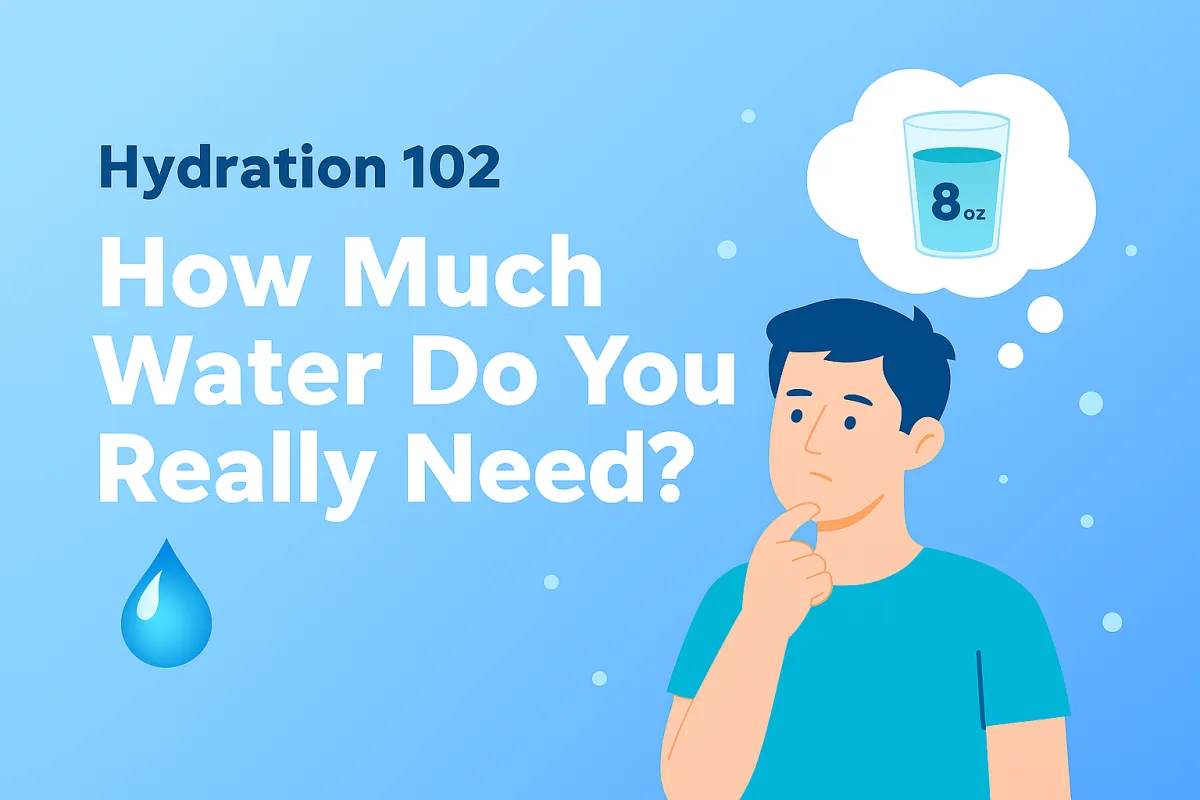
Hydration 102: How Much Water Do You Really Need?
We all know we should drink more water — but how much is enough? The truth is, hydration isn’t one-size-fits-all. Let’s break down the real science behind daily water needs, why the “8 glasses a day” rule is misleading, and what actually determines your ideal intake.
The Real Daily Recommendation
The U.S. National Academies of Sciences suggests:
Men: about 3.7 liters (125 ounces) per day
Women: about 2.7 liters (91 ounces) per day
That might sound like a lot — but this total includes all fluids, not just plain water. Foods like fruits, soups, and even coffee or tea contribute to your hydration.
Quick tip: If your urine is pale yellow and you rarely feel thirsty, you’re probably right on track.
The Myth of “8 Glasses a Day”
We’ve all heard it: “Drink eight 8-ounce glasses a day.” It’s easy to remember but not scientifically grounded.
This rule ignores:
Body size: A petite person and an athlete have very different fluid needs.
Activity level: You lose water faster when you sweat more.
Climate: Hot or humid environments increase water loss.
Diet: Salty or high-protein foods require more water for digestion.
So, rather than fixating on an arbitrary number, pay attention to your body’s signals — thirst, energy, and urine color tell you more than any chart.
What Affects Your Water Needs?
1. Age
Older adults may not feel thirst as strongly as younger people, making dehydration more likely. Children, on the other hand, are more vulnerable because they lose water faster relative to their size.
2. Activity Level
Physical activity, even light exercise, increases fluid loss through sweat and breathing.
Rule of thumb: Drink an extra 500–700 mL (about 2–3 cups) of water for every hour of exercise.
3. Climate
Hot, humid, or high-altitude environments pull moisture from your body faster. Even cold weather can dehydrate you since dry air causes you to lose water through respiration.
4. Overall Health
Illnesses (like fever, diarrhea, or vomiting), pregnancy, or breastfeeding all increase fluid demands.
Listen to Your Body
Hydration isn’t just about numbers — it’s about awareness. Instead of forcing down gallons of water, tune in to how you feel throughout the day. Fatigue, headaches, or dark urine are all early signs of dehydration.
Hydration is a habit, not a chore. Start small, sip often, and build consistency.
Summary (Hydration 102)
In this chapter, we learned:
There’s no universal “8-glasses” rule — hydration is personal.
Men typically need around 3.7L/day and women about 2.7L/day.
Factors like age, activity, and environment all influence your needs.
Listening to your body is the smartest hydration strategy.